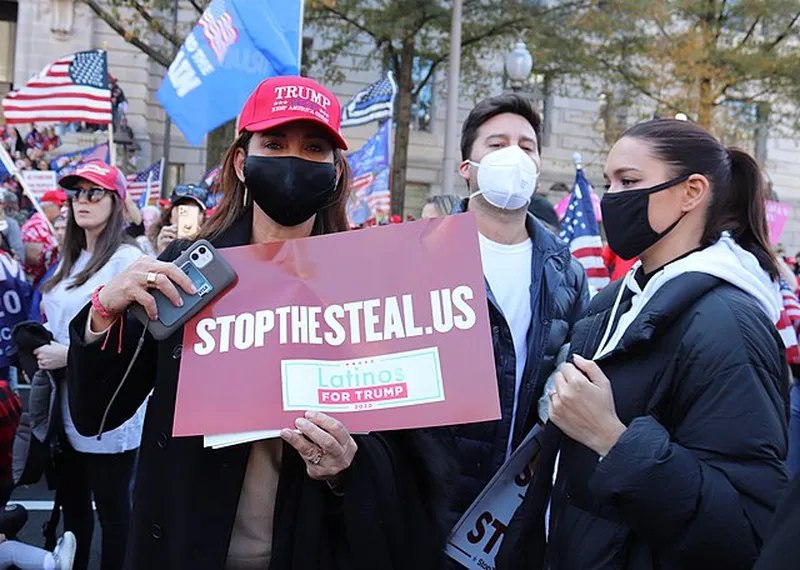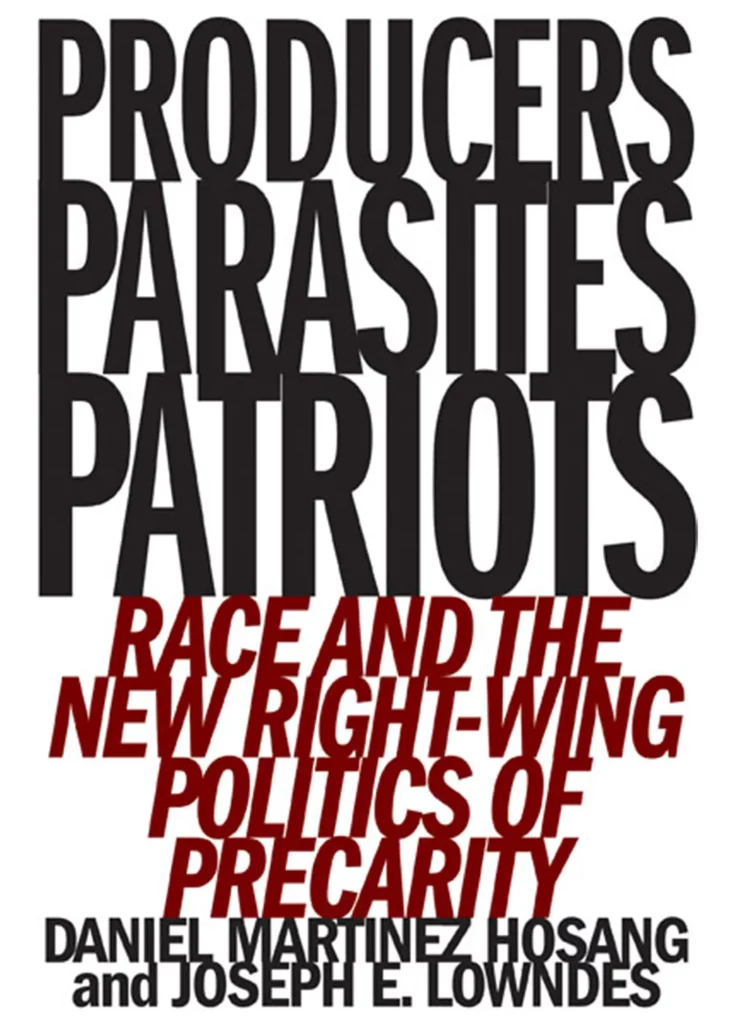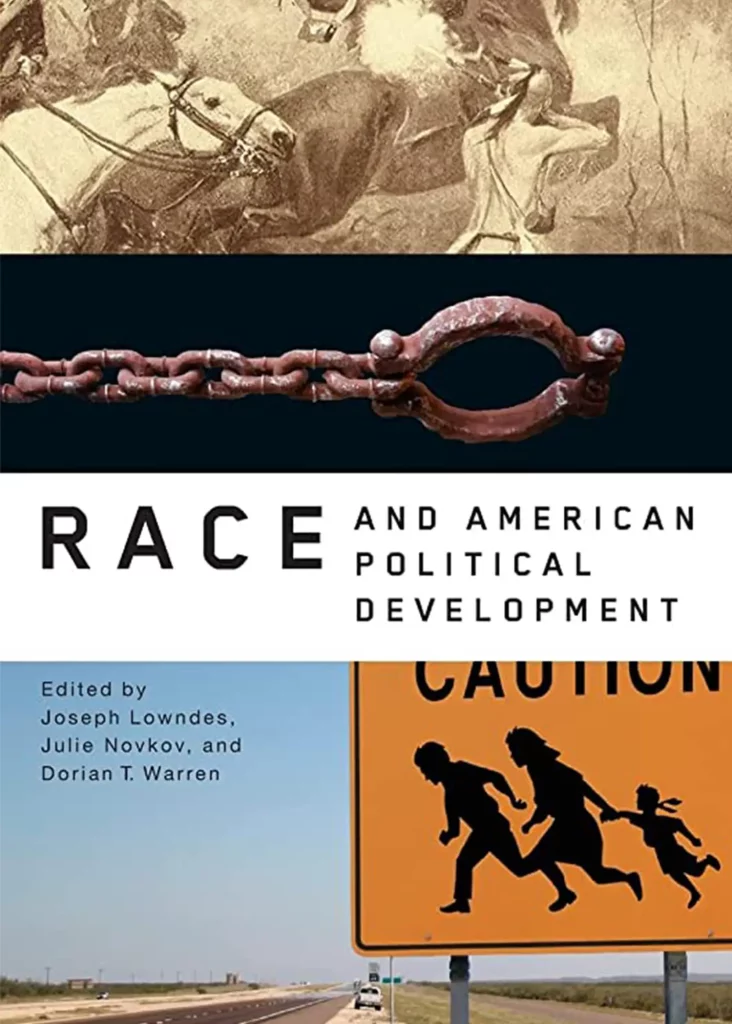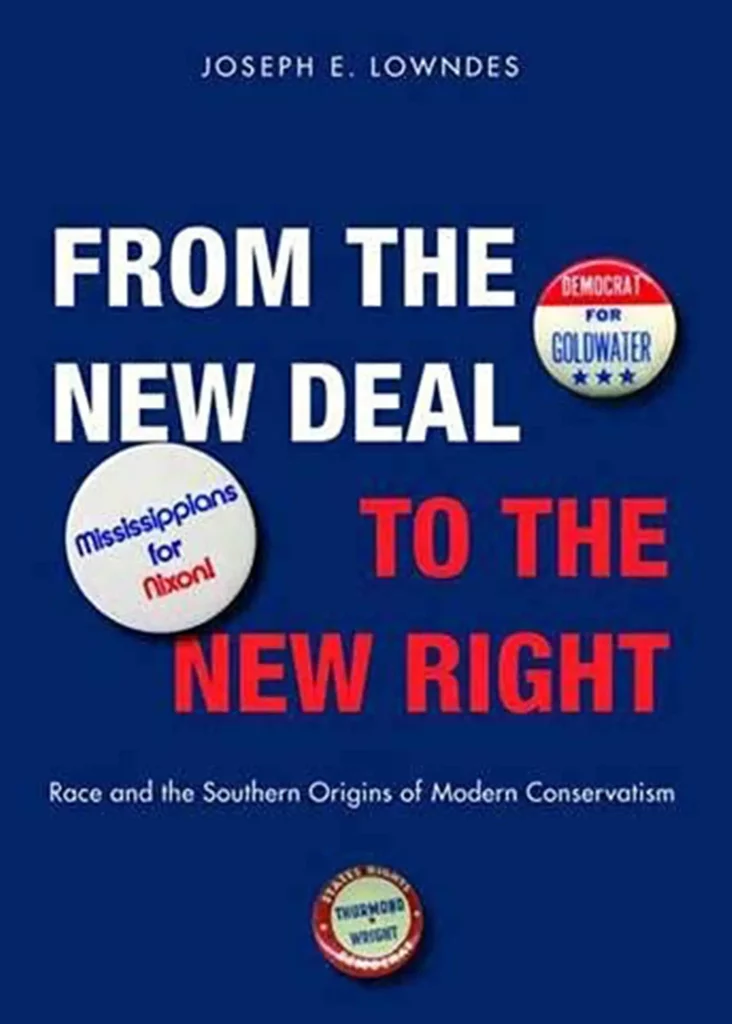Daniel Martinez HoSang and Joseph E. Lowndes are the authors of Producers, Parasites, Patriots: Race and the New Right-Wing Politics of Precarity (University of Minnesota Press, 2019). The HoSang and Lowndes co-edited volume of essays, The Politics of the Multiracial Right, will be published by NYU Press in 2025. HoSang is a Professor of American Studies and Political Science at Yale University. He serves as a Race and Democracy Fellow at the Roosevelt Institute. Lowndes is a Visiting Distinguished Lecturer in the Department of Political Science at Hunter College, CUNY, and is the author of From the New Deal to the New Right: Race and the Southern Origins of Modern Conservatism. They were interviewed by Eric Maroney, who is an Associate Professor at Connecticut State Community College, a graduate student at the University of Connecticut, and a member of the Tempest Collective.
Eric Maroney: I am looking forward to hearing more about your project, The Politics of the Multicultural Right (forthcoming). From what I understand of the book project, it seems to have grown out of your earlier collaboration, Producers, Parasites, Patriots: Race and the New Right-Wing Politics of Precarity. Can you tell New Politics readers a little bit about this new project and what drew you both to the study of the New Right?
Daniel HoSang: As you noted, Joe and I have been collaborating for a while now. Part of what we looked at were earlier emergences of this phenomenon, in the Pacific Northwest in particular, at the role of men of color in militias and in street Trumpist groups. We looked at Patriot Prayer. We also looked at the ascension of a new generation of Black Republicans, and more broadly how the Right was embracing a certain form of multiculturalism as they thought about building new coalitions, especially in the wake of Trump’s 2016 election.
I think we were surprised. I largely bought into the idea that as Trump moved the party and his campaigns further to the right, relying on nativist and racist rhetoric, it would have the opposite effect, limiting any possibility for a multicultural coalition of the Right. Obviously, that appeal grows in 2020 and by that time, we recognized that there are lots of different stories about the new inroads to the Right that MAGA and many other parts of the Right are providing. We found that you couldn’t just describe this phenomenon through a single story. That’s how we got started on this idea of an edited volume by different writers—who had different expertise in the context, history, and cultural dimensions of how these appeals are working at different sites. We wanted to put their work in dialogue to see what it illustrated not just about the multiracial Right, but also about what these defections and movements reveal about politics today, about multiculturalism, about the limits of liberal appeals to identity, about diverse peoples’ ability to be mobilized around the Right, et cetera.
Joseph Lowndes: When we set out to write Producers, Parasites, Patriots, the impetus in that project was seeing, on the one hand, how in the wake of the Great Recession, white working class and white poor people were starting to be described by conservatives in terms that were usually reserved for people of color: welfare dependent, culturally disorganized, or even genetically incapable in some ways. Simultaneously, we saw the emergence of Black and Latino elites in the Republican Party and in corporate America as well. We wanted to ask, how do we think about race and class in these seemingly changed conditions. One of the changes that we have arrived at is a new Gilded Age, which is probably not even a useful term at this point because the inequities are so much more radical than they were in the twentieth century. That led us into trying to look at where and how these right-wing appeals were being articulated and what kind of politics were being generated from them.
One of the things we thought about at the time was the degree to which poor whites were dropping to the bottom and no longer being guaranteed the same kinds of New Deal forms of security that had bolstered the white working class and had brought them into the middle class. Everything that the mid-twentieth century had brought in terms of the GI Bill, the Federal Housing Authority, suburbanization, and everything else had been steadily eroded between the opioid crisis and long-time stagnant or declining wages. There were parts of the country where it was clear that white people were suffering. I think we were kind of hopefully thinking that this could be a moment where people would be willing to abandon whiteness as a political category—that in a neoliberal economy, it no longer serves its purpose [in generating a relative privilege].
This was before Trump came along and then the 2016 electoral primaries happened and it looked like a whole lot of white people who had been left out of the political system came roaring back in a kind of rageful, racist populism. It turned out that this was not a static picture of white people alone, but there was also a developing relationship between conservative or right-wing politics and people of color. We witnessed this not only in the Republican Party but also in the militia-right, the street-fighting fascist right, the Evangelical right—a variety of sites. We published Producers, Patriots, Parasites in 2019, but this phenomenon of the multicultural right was a growing trend. As Dan said, there is not a single explanation here that would tell us why various Latino communities find themselves on the Right, why Black men might be beginning to move in this direction, or how and why Vietnamese Americans, Filipino Americans, South Asian Americans are beginning to vote conservative. We felt we needed the work of sociologists, historians, political scientists, and ethnic studies scholars to help tell the many stories that are a piece of this broad tectonic shift.
Read the whole interview at: https://newpol.org/issue_post/americas-multiracial-right/
Related
Discover more from Joe Lowndes
Subscribe to get the latest posts sent to your email.



